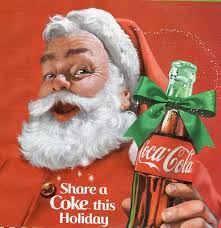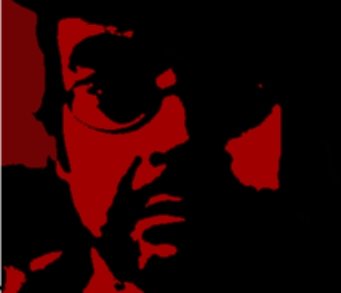Anyone else have a redneck family that started dropping off endless truckloads of random used books from various flea markets at your home the very moment they found out that you like to read?
Thats so cruel. When I mention I like to read my family drops off endless amounts of books at my doorstep.
No but that sounds fucked up. A book collection should be a carefully curated catalog full of things that you personally love or find great use for, not some sad eclectic mix that looks like a hoarder’s pile.
Unless you have a giant library to fill
My parents sort of did this to me for a while… I did get some books I ended up really liking this way but we also lived way out in the country so getting to a library was difficult. Didn’t have much choice but to try them.
But then they realized I was well beyond kids/young adult books and started giving me books they liked when I was in 5th grade, like sphere and the third pandemic… my teachers thought it was super weird, and I got a lot of negative comments about age appropriate-ness, but I had a dictionary and undiagnosed autism (diagnosed adhd, though), it was fine.
I was so excited when we moved and I was walking distance from a library. I ended up getting 2 library cards so I could reserve a bunch of stuff and still check out 5 at a time (I was there usually twice a week, and would just burn through books at around 1,000 pages a day, because it was all I ever did)
It’s not that I’m not appreciative, it’s just that a 40+ year old man like myself can handle only so many Julia Quinn, Emma Chase, and Tessa Dare books
If your whole schtick is about decluttering, you should be able to differentiate between “less” and “fewer.” Getting things down to a countable number achieves “fewer”-ness.
Also, looking at walls of books sparks joy.
Sorry, less word more good
Less word more fewer!
Less book more feuer!
Careful there, you sound a bit like a nazi.
deleted by creator
+1
Less junk, fewer things. Less anxiety, fewer panic attacks.
… And I already reached semantic satiation with “fewer.”
Less shit, fewer sewers.
If your whole schtick is about decluttering, you should be able to differentiate between “less” and “fewer.” Getting things down to a countable number achieves “fewer”-ness.
Bullshit dogmatic rule by pedants who make up rules & pass them down like schmucks instead of observing & studying the actual, standard language. True: fewer is only for countables. However, less is fine. It has been used with countables for about as long as written English has existed as documented by linguists & English usage references:
quoted passage
The primary point is that the now-standard pedantry about less/fewer is in fact one of the many false “rules” that have recently precipitated out of the over-saturated solution of linguistic ignorance where most usage advice is brewed.
But not the usage advice at MWCDEU. This is the start of its entry on less/fewer:
Here is the rule as it is usually encountered: fewer refers to number among things that are counted, and less refers to quantity or amount among things that are measured. This rule is simple enough and easy enough to follow. It has only one fault—it is not accurate for all usage. If we were to write the rule from the observation of actual usage, it would be the same for fewer: fewer does refer to number among things that are counted. However, it would be different for less: less refers to quantity or amount among things that are measured and to number among things that are counted. Our amended rule describes the actual usage of the past thousand years or so.
As far as we have been able to discover, the received rule originated in 1770 as a comment on less:
This Word is most commonly used in speaking of a Number; where I should think Fewer would do better. No Fewer than a Hundred appears to me not only more elegant than No less than a Hundred, but strictly proper. —Baker 1770
Baker’s remarks about fewer express clearly and modestly—“I should think,” “appears to me”—his own taste and preference. […]
How Baker’s opinion came to be an inviolable rule, we do not know. But we do know that many people believe it is such. Simon 1980, for instance, calls the “less than 50,000 words” he found in a book about Joseph Conrad a “whopping” error.
The OED shows that less has been used of countables since the time of King Alfred the Great—he used it that way in one of his own translations from Latin—more than a thousand years ago (in about 888). So essentially less has been used of countables in English for just about as long as there has been a written English language. After about 900 years Robert Baker opined that fewer might be more elegant and proper. Almost every usage writer since Baker has followed Baker’s lead, and generations of English teachers have swelled the chorus. The result seems to be a fairly large number of people who now believe less used of countables to be wrong, though its standardness is easily demonstrated.
Less is more general than fewer, and the references identify common constructions where less is preferred with countables.
But… Stephen King alone has written 65 novels…
That he remembers writing between all the coke he did
I’ve seen interviews with him where he mentioned: ‘I was reading a synopsis of a story that sounded really interesting’ only to discover that it was about a book that he had written. And apparently he has no memory of writing Cujo.
There’s ‘doing coke’ and ‘doing coke so much I forgot I wrote a fucking best selling novel’.
I read one of his short stories recently that followed one of the characters whose child died in Cujo. I love the idea of Stephen King completely forgetting he wrote that book and having to go back and read it to come up with characters for his later stories. Do you suppose while reading he was like “Damn this book is great, I wonder what’ll happen next?”
You’ll have to pry my Pratchett collection from my cold, dead hands.
I have never read all of his books because at some point I will have read his last book.
Sadly the quality was dipping for the last few. I didn’t finish Unseen Academicals.
At that point, you can read them again.
When we moved in, the neighbors daughter was curious about the “new ones”, and asked if she could help.
I told her that I would be putting the books on the shelves the next day, and she promised to come over.
I don’t know what she expected (when we visited them, I never saw a book in their place), but she was shocked when she saw a large pile of boxes. I had just finished installing the first wall of shelves, and told her that we would have to sort the boxes out, only about 10k books were for the living room, the other would go up into the studio…
There’s having 30 books, and 10.000 books. There’s probably a sweet spot somewhere in the middle. No one needs 10.000 books.
No one need 10.000 books
Not with that attitude.
That reminds me of the section in Black Swan where Taleb talks about Umberto Eco’s library:
“The writer Umberto Eco belongs to that small class of scholars who are encyclopedic, insightful, and nondull. He is the owner of a large personal library (containing thirty thousand books), and separates visitors into two categories: those who react with “Wow! Signore professore dottore Eco, what a library you have! How many of these books have you read?” and the others — a very small minority — who get the point that a private library is not an ego-boosting appendage but a research tool. Read books are far less valuable than unread ones. The library should contain as much of what you do not know as your financial means, mortgage rates, and the currently tight real-estate market allows you to put there. You will accumulate more knowledge and more books as you grow older, and the growing number of unread books on the shelves will look at you menacingly. Indeed, the more you know, the larger the rows of unread books. Let us call this collection of unread books an antilibrary.”
Some people read a hundred books in their lifetime and keep 30. The 10k books on those shelves only represent a small part of what I have read in my lifetime.
That’s an impressive claim, but let’s break down the math here. To read 10,000 books in your lifetime (that you claim is only a small part of books read), you’d need to maintain an absolutely relentless pace that borders on the impossible.
Let’s assume a typical book averages around 70,000 words (roughly 200-300 pages). The average adult reads at about 238 words per minute, which means ech book would take approximately 5 hours of pure reading time. Multiply that by 10,000 books and you’re looking at 50,000 hours of reading - that’s equivalent to working a full-time job for 24 years straight, doing nothing but reading.
Even if we’re generous and assume you started reading seriously at age 10 and are now 70, that’s 60 years of reading. To hit 10,000 books, you’d need to finish 167 books per year, or more than 3 books every single week for six decades. That means spending roughly 15 hours per week reading - every week, no breaks, no vacations, no life getting in the way.
The assumptions get even more problematic when you consider that this pace would need to be maintained through your childhood, school years, career building, relationships, and all of life’s other demands. Most voracious readers I know average 50-100 books per year at their peak, and even that requires significant dedication.
For context, if you read one book per week for 50 years you’d reach about 2,600 books. Impressive, but nowhere near 10,000. Your claim would require either superhuman reading speed, an unusually broad definition of what counts as a “book,” or some serious exaggeration. The math just doesn’t add up for a realistic human lifestyle.
Lucky me has been a speed reader basically from the start. I cannot imagine how painfully slow 238 words per minute must feel. The brain has probably forgotten half of the story when the reader reaches the end of a book weeks later. As a teenager, I already read about five books a day. Autism has its advantages…
I’m making a push to hoard my books a little more organized. With the space I have on my e-reader, I could easily have thousands of books.
And I intend to take advantage of that. And I think I might keep a local git repo just for the sake of making sure regex formatting changes don’t fuck things up.
My apartment is 60% books. I don’t have enough bookshelves, I have most loaded to the point where they are bending and there are piles of books stacked on top. Stacks and stacks and stacks.
I think my library is almost an art project at this point. I thrift a lot, check out library discard sales and have a bunch of things I bought when you could get books on Amazon for a penny + shipping. I often pick up 5-10 a week, because at the thrift shop that’s maybe $10 at most. (Goodwill is getting precious, but the really ratty ones are often prime spots.)
Very little fiction. Mostly textbooks and history and language and arcane computer things and strange religious literature and philosophy and paranormal arcana. Obscure things - I mostly collect things that I wouldn’t normally be able to find in a library.
My ex hated my books and wanted to work out a deal where I’d have to give up two for every one I took in. Now I am free to live in a pile of stacks. I don’t care if it looks “messy” or “cluttered.” It represents my mind.
At least when you die and archeologist find your trove we’ll be able to deep learn your stack in order to recreate a cyber you.
A goal of mine is to ensure that my library is preserved in some fashion after I die, because I do believe it would be valuable. Many of the books I have are out of print, rare, and obscure. I have a fantasy of a library room set aside with my collection - a couple of comfortable chairs in a little nook.
Especially with the way that AI has polluted information sources online, I think having a collection of the printed word which is guaranteed to be vetted and written by humans would be useful. The religious material I think also could be helpful in preserving history - eg, I have versions of Mormon books which are likely not consistent with current doctrine.
This shit seems weirdly disposal/consumerism focused.
Fuck all of this.
Well she is big on giveaways, as long as you’re not “cleaning“ while in fact dumping tons of junk on family members who are equally convinced “oh yeah maybe someday I’ll totally wear this…“
I’m not sure why you’re conflating “don’t hoard things you don’t need” with consumerism.
There’s certainly ways to do that irresponsibly, but it’s not part of the philosophy.
Im sure the other extreme isn’t great
But then, hoarding is usually a reaction to poverty.
If you should keep one thing in life it’s books.
How do I actually read more? Like how do force myself to read a book. I have some cool books I’d like to read but it’s hard to choose it over say a video game. I also have ADHD.
Godamn, I feel bad about the one book I’m reading on top of the next book “I may or may not read.”













